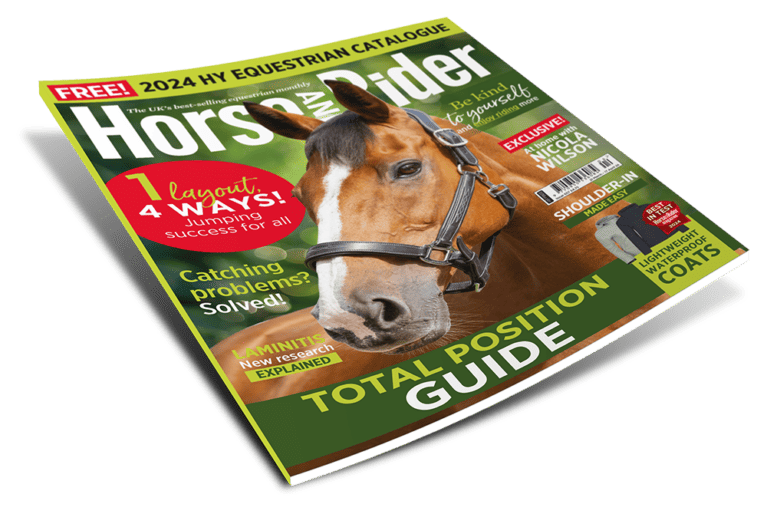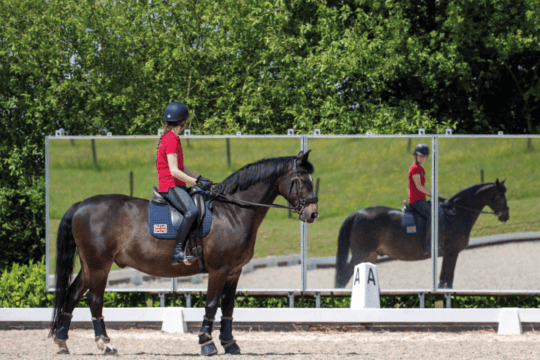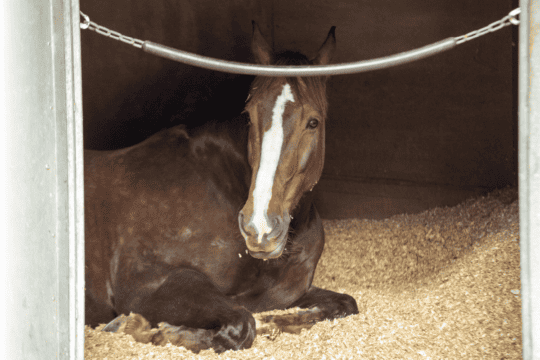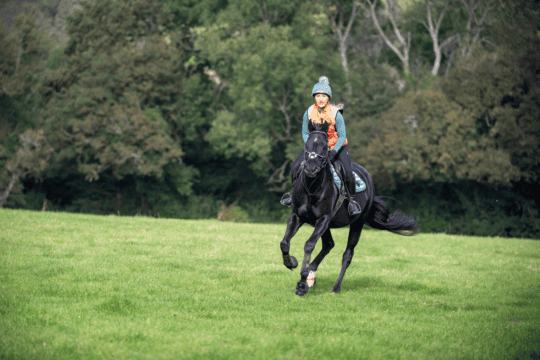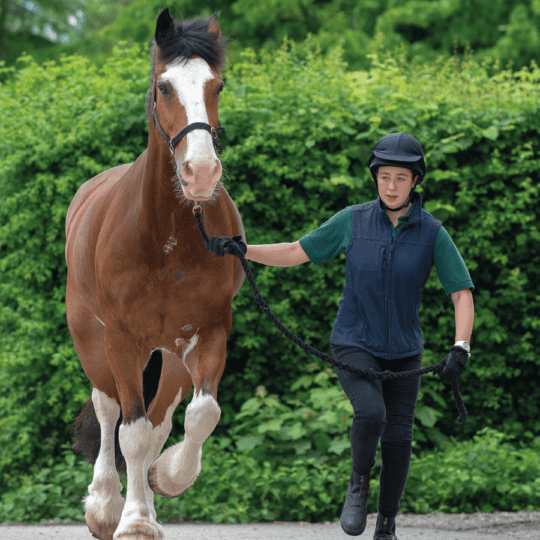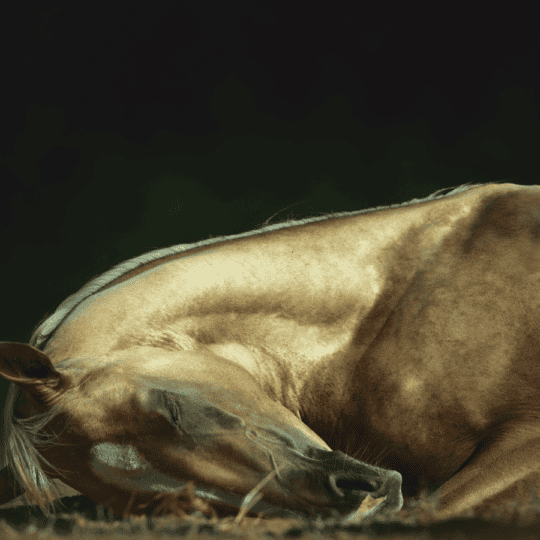Feeding for training
Posted 4th December 2019
Understanding how your horse’s diet impacts his performance will help boost your scores this spring, as Baileys Horse Feeds nutritionist, Emma Short, explains
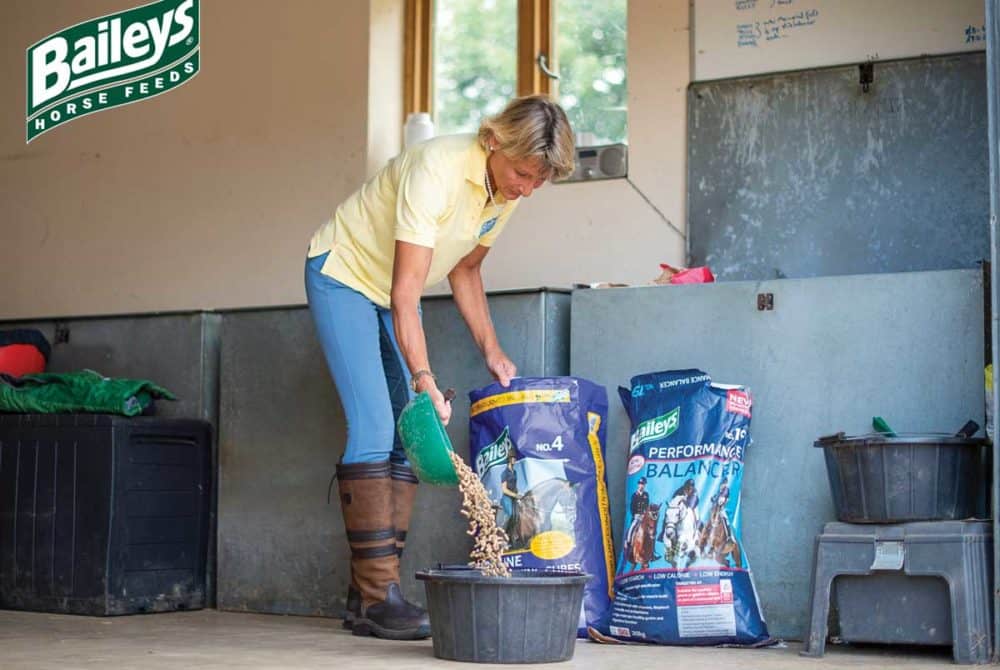
The diets of elite human athletes have never been more in the spotlight, and it’s common knowledge that correctly fuelling training has a big impact on success. But have you considered that the same is absolutely true of your horse?
A disciplined training and exercise regime can only achieve so much because, like any athlete, your horse will only develop a strong, well-muscled body when correct work is complemented by the right nutritional building blocks.
The magic ingredient
The main component of muscle and body tissue is protein, which is supplied in limited amounts by forage. Working horses, and those whose muscle tone and volume need some improvement, require support in the form of a balanced feed or balancer.
The harder your horse works, the greater his demand for protein will be. Consequently, feeds formulated for horses in moderate to hard work will have 12–13% protein, compared to those designed for light work, which may contain 9–11% protein.
Myth: busted
Many owners are afraid of feeding protein in the mistaken belief that it’s the cause of excitable behaviour. Fizziness and excitability are more often the result of having excess energy due to being fed too many, or the wrong kind of, calories – such as fast-release rather than slow-release. These higher energy feeds, formulated for heavy workloads, also contain elevated protein levels, which is where the myth comes from – but protein isn’t the cause of the behaviour.
Food focus
If your horse is a good-doer or overweight, then a conditioning or competition feed may supply too many calories. In this instance, a balancer is a better choice. This is because concentrate feed fed at less than the recommended amount not only provides fewer calories, but also less quality protein and not enough essential nutrients. A balancer can supply the nutrients your horse needs without the calories and can be given as the only concentrate feed alongside forage, or added to reduced amounts of mixes or cubes to top up nutrient levels and maintain a balanced diet.
In association with baileyshorsefeeds.co.uk
Find out more about how to feed your horse according to his workload in February Horse&Rider, on sale 12 December.

